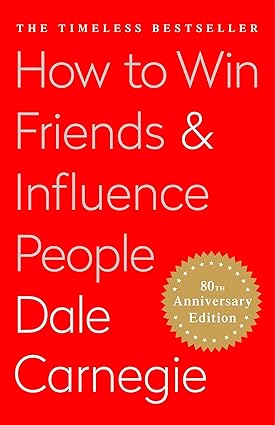Weekly Bookmarks
102nd Edition – January 17, 2021
You can learn seven facts per second, every second, for the rest of your life and still have plenty of room left to learn more.
Michael Gelb, How to Think Like Leonardo da Vinci
1. The Convicted Bank Robber Turned Entrepreneur
As a business consultant, I estimate that I’ve worked with about 100 CEOs. Most have this trait in common – they read. Some read a lot. Some read what I recommend to them. Accordingly, I’m always interested if other successful entrepreneurs are readers. If so, what are their favorites?
This week, I was reading about Del Dunmire. Dunmire was a self-made millionaire selling airplane parts. And yes, he really did rob a bank so that he could pay gambling debts. That was well before he started his first business.
According to Dunmire’s psychological consultant, his only business training before launching Growth Industries in Grandview, Missouri was two books he studied while in prison:
- The Prince by Niccolo Machiavelli
- How to Win Friends and Influence People by Andrew Carnegie

2. Dunmire Was a Voracious Reader
In case you are curious, here was Dunmire’s reading regimen as he continued growing as a business person:
- 6-7 daily newspapers daily
- technical books on business and economics
- dozens of trade publications
- advertising flyers
- pop psychology books
- how-to articles found in airplane seat pouches
Not bad for a sales-oriented owner who once spent $1 million on one of his weddings in Kansas City, Missouri.
3. A Return to the Basics
As I was studying Dunmire this week, I was impressed that an entrepreneur with limited (professional) business training could be so spot on when it came to strategy and tactics in his chosen industry.
During any financial crisis, his mantra was returning to the basics. He would have done so during this pandemic. Consider the following critical factors his company followed to achieve monopolistic advantages in manufacturing and selling airplane parts:
- in spite of limited business education, he surmised that mass production at competitive pricing was a ticket to oblivion
- yet, creating one aircraft part for just one airline could lead to wealth and a monopoly-like business segment
- state-of-the-art production was never in question
- yet, plants were run at minimal expense with essentially no debt
- and he maintained a survival instinct – he never strayed from the most basic elements of business
Another stroke of genius for this non-Harvard business owner was that he only produced nonessential parts since a defect in any operating or life support system could quickly bankrupt a supplier should a plane go down.
4. A Brief 101 on Psychological Consulting
DiSC, HEXACO, Myers-Briggs Type Indicator, The Birkman Method, The Predictive Index, or Hogan Development Survey.
Which of these assessments have you taken? Two? Three? More?
The personality profile business (I’m guessing) is a $2 billion industry. It’s big business. But when or where did it get started? Here is a starting ground according to one psychological consultant:
- In the early 20th century, psychology was identified closely with the development of intelligence testing
- World War I provided rapid development of intelligence tests
- Psychologists during that period could not agree on how to assess personality
- The field of clinical psychology was born in 1949 at the University of Colorado
- Kurt Lewin was recognized as the founder of modern social psychology and a pioneer in the field of action research, group dynamics, and organizational psychology
Lewin’s name might not ring a bell, but his Force Field Analysis framework is probably used frequently in your business (but the mental model goes by many names).
I’ll stop here, but Perry Rohrer created the practice of psychological consulting to business management around 1949. For perspective, James McKinsey started his consulting firm in 1926. Selling ‘strategy’ became big business starting around 1964 at BCG.
5. The Bank Robbery Revisited
Money magazine in 2016 called Delbert Dunmire the most interesting guy in the world. Was he?
One of my favorite Dunmire stories occurred when he went back to the scene of the crime where he robbed a bank in Abilene so that he could pay gambling debts.
He donated $50,000 to the city to build a band shell. During the contribution ceremony that followed, he filled a grab bag with $45,000 that was shared with all of those attending the event.
But that’s not all. He bought the bank building that he robbed.
Source
If you want to learn more about Del Dunmire, consider Management Practices of Successful CEOs by James P. Armatas. It’s a bit dry, but his story on Dumire was a great read.

Performance Measurement
Don’t have time to listen to the CFO Bookshelf podcast? Consider checking out the notes I wrote while interviewing one of the best thought leaders on performance measurement. There’s also a great list of books to choose from if this topic interests you.
Recent Bookmarks – 101 |100 |99
Thank You For Reading. Thank you for making this a successful newsletter.
If you like the content above and the posts at CFO Bookshelf, may I ask a favor? Feel free to share this with other readers along with commenting on your favorite blog posts on LinkedIn, Twitter, or Facebook.
Always be learning and growing.

Leave a Reply